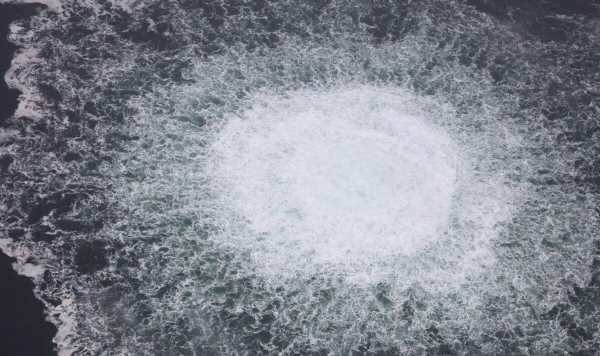Russia may not be to blame for Nord Stream attacks, say officials
Nord Stream pipeline sabotage attributed to US by Sachs
We use your sign-up to provide content in ways you’ve consented to and to improve our understanding of you. This may include adverts from us and 3rd parties based on our understanding. You can unsubscribe at any time. More info
Russia may not be to blame for the Nord Stream pipeline explosions, European officials have acknowledged, despite widespread accusations to the contrary in the days after the attack.
While the idea it was a deliberate act is not in dispute, western officials have begun to question whether Russia was involved after investigations failed to demonstrate its culpability. One European official said there was “no evidence” of Russia’s involvement, while a senior US state department official admitted that forensic investigations into the attacks were proving “exceedingly difficult”.
Echoing the assessment of 23 diplomatic and intelligence officials in nine countries interviewed in recent weeks, one European official said: “There is no evidence at this point that Russia was behind the sabotage.”
Another Western European official said: “The rationale that it was Russia [that attacked the pipelines] never made sense to me.”
The suspicions have arisen after months of difficult forensic analysis failed in any meaningful manner to prove Russia’s culpability.
In light of the lack of demonstrative evidence, one European official said: “The governments that waited to comment before drawing conclusions played this right.”


Investigations have, however, shown the explosions were not random but carried out by a “state-level actor”.
Through extensive analysis of the debris and residue of the explosives, recovered from the sea bed, officials have concluded that the acts were deliberate.
An official with the German government, which is conducting its own investigation, said explosives appear to have been placed on the outside of the structures.
“We know that this amount of explosives has to be a state-level actor,” Finnish foreign minister Pekka Haavisto said in an interview this month. “It’s not just a single fisherman who decides to put the bomb there. It’s very professional.”
Swedish foreign minister Tobias Billstrom said his Government was waiting for the country’s independent prosecutor’s office to complete its investigation but, in the meantime, Sweden and Denmark had increased its naval patrols after the attack.

The Kremlin was condemned in the aftermath of the explosions. Within days, US energy secretary Jennifer Granholm said it “seems” Russia was to blame.
German economy minister Robert Habeck also suggested Russia was responsible, saying in early October: “Russia saying ‘It wasn’t us’ is like saying ‘I’m not the thief’.”
An adviser to Ukrainian President Volodymyr Zelensky called the explosions “a terrorist attack planned by Russia and an act of aggression toward [the European Union].”
A senior European environmental official told The Washington Post at the time: “No one on the European side of the ocean is thinking this is anything other than Russian sabotage.”
Russia remains a key suspect – its history of bombing energy infrastructure in Ukraine and a desire to shut off gas supplies to Europe caused suspicions to develop, as well as a potential motive – but a lack of current evidence must be recognised, officials said.
DON’T MISS: Putin considering ‘further steps’ after accusation of UK sabotage [REVEAL]
Putin blames British Navy for gas pipeline explosion [REPORT]
Putin poised to spark energy horror in UK as Russia plots sabotage [REVEAL]

The attacks occurred in four locations — two in Denmark’s exclusive economic zone and two in Sweden’s exclusive economic zone – and irrespective of who is to blame, officials have suggested the security in the region has undoubtedly worsened since Russia invaded Ukraine.
Mr Bilstrom said: “We have spoken about [the explosions] as part of the view that the security situation in the northern part of Europe has deteriorated following Russia’s aggression on Ukraine, with all the implications that it has.”
The prospect these explosions may never be conclusively attributed to a nation or organisation is unsettling, according to other officials.
“It’s not a good thing,” a Norwegian official said, of the possibility the Nord Stream explosions may remain unsolved. “Whoever did it may get away with it.”
READ NEXT: Russia has got Europe hooked on cheap energy ‘like cocaine’
Putin won’t need nukes – his underwater drones will cripple UK
Russia accused of stealing Swedish cameras for terrifying drones
UK military has ‘limited resources’ to defend subsea cables
Expert claims Putin has terrifying plot after multiple cables severed
Source: Read Full Article

